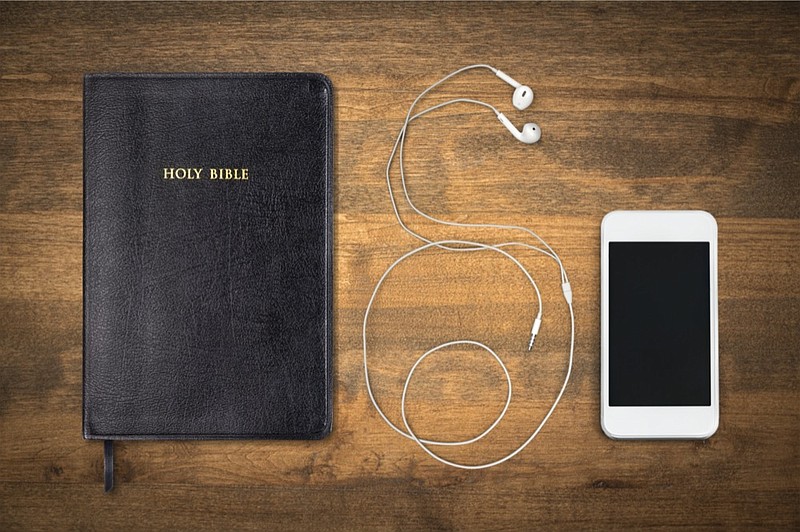I have an app on my iPhone that allows me to track my 14-year-old son - as long as he has his phone at his side, which is 99.99% of the time. Basically, any time he is not completely under water.
This comes in handy if, say, he wants to ride his bicycle to the town swimming pool a couple of miles away from our house. It gives me peace of mind to check an app and know that he got there safely.
But here's where the technology gets iffy. The same app is connected to my 19-year-old son's phone. Sometimes, it's nice to be able to see that he made it back to campus in Birmingham, Alabama, a 2.5-hour drive away from our house.
But what if I wake up at 2 a.m. and decide to see if our older son is in his apartment or out on the town? It's possible, but is it right? I lean "no." I certainly wouldn't have agreed to such terms when I was 19 years old.
It's just one of the questions that modern technology poses to modern humans.
As a highly imperfect person of faith, I've been thinking a lot lately about the intersection of technology and beliefs. As attached to my iPhone as I am, it seems to offer God-like powers that I'm not entirely comfortable with.
When I was young, way back in the middle of the 20th century, we used to talk in Sunday School about God being an all-knowing, all-seeing Spirit. Now, we have a pocket device that puts us within a few taps of most of the world's knowledge (all-knowing), and can track people from space down to a few feet (all-seeing).
This feels like God's turf.
Plus, we now have social media, which is a rough proxy for being able to read people's minds. When people post exactly what they are thinking 24/7, we have an uncomfortable amount of information about one another.
I used to like people a lot better when I didn't know everything they thought. (I realize this might sound hypocritical coming from a professional opinion writer, so just add that to my list of internal conflicts brought about by technology.)
Also, technology seems to amplify our worst habits and instincts: gossip, conceit, pride, envy, greed.
Or as conservative New York Times columnist Bret Stephens wrote so eloquently last week: "The new technologies have shortened our attention spans, heightened our anxieties, made us more prone to depression and more in need of outside validation, left us less capable of patient reflection and also less interested in seeking out different points of view."
Amen, brother.
To be fair, technology also has the power to enhance faith. For example, Facebook may be the most powerful tool ever invented for disseminating prayer requests.
So what's to be learned here? Caution, I guess. And the healthy understanding that technology can intensify both darkness and light.
I suspect that in the future overuse of technology - I see you, smartphone - will be viewed as a treatable addiction. Much as alcohol use starts for many as a stress reducer and for some progresses to overuse that stresses the body and the soul, so can our little pocket computers damage our hearts.
Moderation is key. Get used to the idea of mobile phone diets: the intentional limitation of time spent scrolling endlessly on phone apps.
The heart is an imperfect container for information. Overfill it, and it will burst. Underfill it, and it will atrophy.
While limiting access to information and social media may seem anti-modern, it may ultimately be the best way to maintain our mental health.
And our faith.
Email Mark Kennedy at mkennedy@timesfreepress.com.
